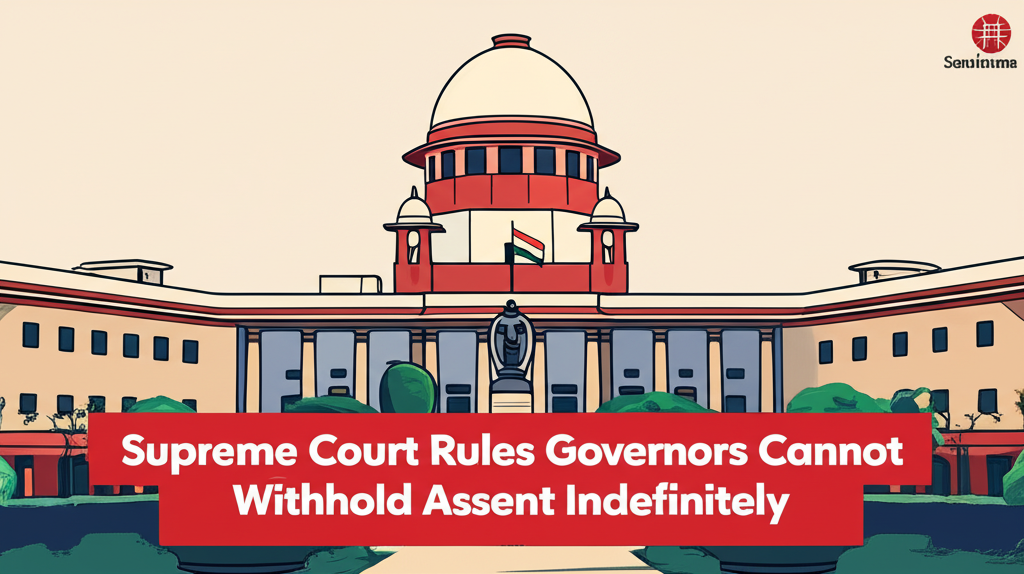
Saralnama
The Supreme Court of India ruled that elected state governments cannot be subject to the discretion of governors regarding bill approvals. Under Article 200 of the Constitution, governors have four options when a bill is passed by the state legislature: give assent, withhold assent, reserve the bill for the President’s consideration, or return it for reconsideration. However, if the legislature passes the bill again, the governor must grant assent and cannot send it to the President a second time. The five-judge bench, led by Chief Justice B.R. Gavai, emphasized that indefinite withholding of assent would undermine elected governments. The court also noted that the Constitution is a living document and its interpretation must evolve. The issue arose from a dispute in Tamil Nadu where the governor withheld assent to bills. The Centre argued that governors have constitutional powers beyond being mere postmen, but the court maintained that governors cannot indefinitely stall bills. The hearing on this matter is ongoing. Additionally, the President had referred 14 questions to the Supreme Court regarding the powers of governors and the President under Article 143(1). The ruling clarifies the balance of power between elected governments and constitutional appointees in states. (Updated 21 Aug 2025, 04:24 IST; source: link)